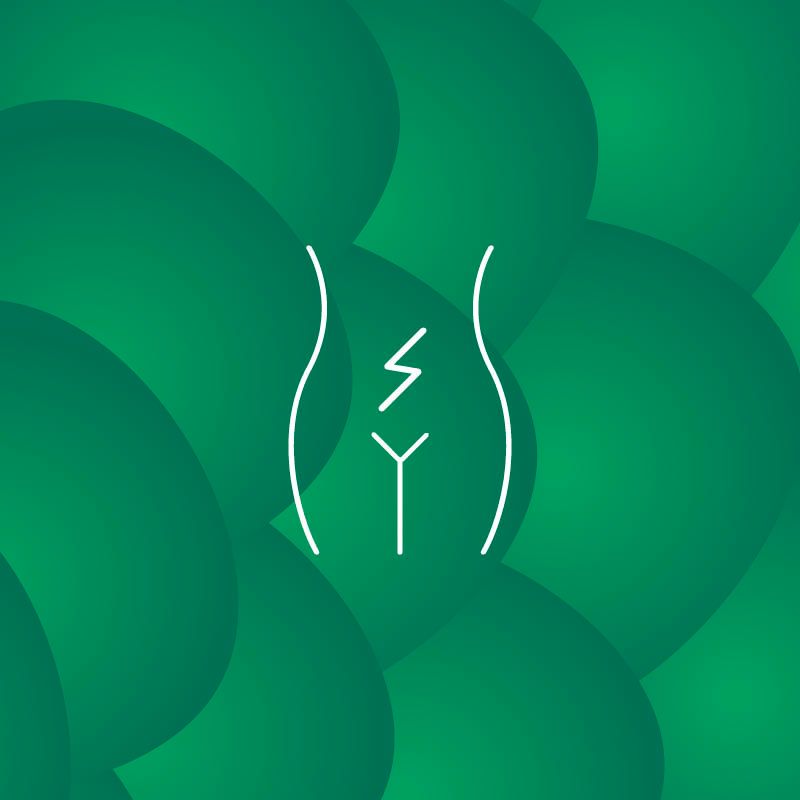
Vaginal infections are common problems in women and can be caused by various things such as bacteria, fungi, viruses or protozoa.
The diagnosis is usually made by means of a gynecological examination, smears for microscopic analysis and special tests to identify bacteria, fungi or viruses. If sexually transmitted infections such as herpes, HPV, chlamydia, gonococci, syphilis (Lues) or HIV are suspected, additional laboratory tests are carried out. Treatment depends on the cause and may include antifungal drugs, antibiotics, antiviral drugs or other specific therapies. Early diagnosis is important, as untreated infections can lead to complications such as chronic pain, infertility or an increased risk of infection. As a preventative measure, good intimate hygiene, wearing cotton underwear, avoiding perfumed products and the consistent use of condoms during sexual intercourse are recommended.
Vaginal mycosis (fungal infection)
Yeast infections are usually caused by yeast fungi of the genus Candida. If there is an imbalance in the vaginal flora, these fungi can multiply rapidly. Typical symptoms are itching, burning, whitish, crumbly discharge and pain when urinating. Triggers can be antibiotic therapy, hormonal changes, diabetes, pregnancy or a weakened immune system. Treatment is usually with antifungals in the form of creams or tablets.
Bacterial vaginosis
This infection is caused by an imbalance in the natural bacterial flora. Typical signs are an unpleasant, fishy odor, thin discharge, itching or burning. Risk factors are excessive intimate hygiene, unprotected sexual intercourse or hormonal changes. Treatment is with antibiotics, usually in the form of vaginal creams or tablets.
Trichomoniasis
Trichomoniasis is a sexually transmitted infection caused by the parasite Trichomonas vaginalis. Symptoms are yellowish-green, foamy discharge, itching, burning and pain during sexual intercourse. Treatment is with special antibiotics.
Genital herpes
Herpes is caused by the herpes simplex virus (HSV). Typical symptoms are painful blisters in the genital area that burst and leave small ulcers. The infection progresses in phases and remains in the body for life. Antiviral medication such as acyclovir can reduce the duration and severity of the symptoms.
HPV (human papillomavirus)
HPV is one of the most common sexually transmitted infections. Some HPV types cause genital warts, others can cause cell changes on the cervix, which pose a risk of cervical cancer. Screening is carried out by Pap smears and HPV tests. Vaccination offers effective protection against the most dangerous HPV types.
Chlamydia
Chlamydia infections are often asymptomatic, but can lead to inflammation of the fallopian tubes and infertility if left untreated. If symptoms occur, discharge, pain when urinating or lower abdominal pain are typical. Treatment is with antibiotics and partner treatment is important.
Gonorrhea (gonococci)
This infection is caused by Neisseria gonorrhoeae. Symptoms include purulent discharge, a burning sensation when urinating and pain in the lower abdomen. Antibiotic therapy is also necessary here and the partner should also be treated.
Syphilis (Lues)
Syphilis is caused by the bacterium Treponema pallidum. The disease progresses in several stages and can cause severe organ damage if left untreated. A painless ulcer in the genital area is typical in the early stages. Treatment is with penicillin.
HIV
The human immunodeficiency virus weakens the immune system and can lead to AIDS if left untreated. The infection is transmitted through blood and sexual contact. A cure is still not possible, but lifelong antiretroviral therapy prevents the onset of AIDS and enables a normal life.
Ulcus molle (Haemophilus ducreyi)
Ulcus molle, also known as "soft chancre", is a sexually transmitted infection caused by the bacterium Haemophilus ducreyi. After an incubation period of around 3 to 7 days, small, painful papules appear at the site of entry, which quickly break open and turn into soft, painful ulcers with irregular edges. Often there is also a painful swelling of the inguinal lymph nodes (buboes), which can become ulcerated and form abscesses.
Online appointment booking
Would you like an appointment? It's quick and easy with our online booking tool - we look forward to hearing from you!
Learn more
Here you will find further information on the specialist area of gynecology.




